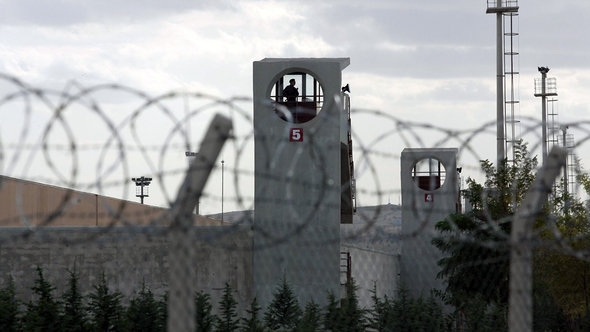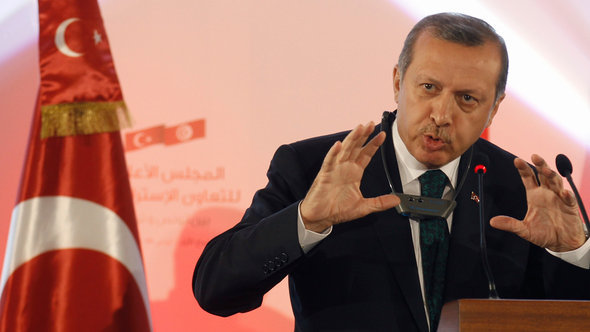Erdogan Braces Himself for a ''Civilian Coup''
Ever since protests began in Gezi Park on 28 May, Turkey's prime minister, Recep Tayyip Erdogan, has been painting protestors as "thugs" and "extremists".
More recently, he has gone one step further and accused activists of plotting against the government and trying to plunge the country into chaos in order to topple the government. For some observers, Erdogan's decision to organise a major rally in the Ankara suburb of Sincan this weekend is not a coincidence.
"Sincan was a symbol of the 28 February period," said Utku Cakirözer, senior journalist at the secular Cumhuriyet daily. "Now, there is speculation in the press that Erdogan's decision to hold the major rally there is deliberate."
On 28 February 1997, Sincan became the symbol of Turkey's last major military intervention. The events became known as a "postmodern coup" or the "28 February process". As part of a political campaign orchestrated against Prime Minister Necmettin Erbakan's Islamic government, generals ordered tanks onto the streets of Sincan to back up their military coup. The crisis led to the resignation of Erbakan's coalition government.

Face-off between the police and the military
"In the past, the usual suspect for coup attempts has always been the Turkish armed forces," said Omer Sahin of the daily newspaper Radikal. Today, however, the people behind the 1997 coup – including retired, high-ranking generals – are behind bars in a Sincan prison. Moreover, ever since Chief of Staff General Necdet Ozel assumed office in 2011, the armed forces have refrained from making public statements in matters relating to domestic politics. Instead, the military and the government communicate with each other behind closed doors.
Utku Cakirözer, Ankara correspondent at Cumhuriyet, believes that this system works. "This is probably why we are not hearing anything from the army on the recent protests," he says. But despite its apparent silence, Cakirözer also believes that the army is very worried about the growing risks of a face-off between police and the military.
"On the first day of the demonstrations, army staff helped demonstrators in a couple of military establishments in Istanbul," says Cakirözer. For instance, staff at a military hospital gave protestors surgical masks as a means of protecting themselves against tear gas. At one point, a group of protestors took shelter at another military establishment. There was even a scuffle between military and police officers at an army base.
"These incidents obviously caused anxiety among the top brass of the armed forces," says Cakirözer. "Soon after that, every effort was made to keep military personnel away from the demonstrations." Moreover, the weekend leave of draftees was obviously suspended to avoid any encounters with the police.

A "civilian coup"
In recent speeches, however, Erdogan has made it clear that he doesn't at present consider the military the biggest threat to the government of his ruling Justice and Development Party (AKP). "[Erdogan] sees the Gezi Park protests as a plot aimed at toppling him – a plot that has domestic and international as well as economic dimensions," says Cakirözer.
Omer Sahin of Radikal agrees, arguing that the language now being used to describe the protests has taken on a new slant. According to Sahin, AKP officials are now using a new term: "civilian coup". "Prime Minister Erdogan thinks he is being directly targeted by some financial groups and banks – those that the prime minister calls 'interest lobbies.' They think that the demonstrators are being manipulated, being used as instruments." Sahin adds, however, that no one seriously believes that the armed forces are behind the unrest this time.
Some analysts see a political calculation behind Erdogan's policy of increasing tension in domestic politics. "Erdogan plans to polarise the country, to unify the party grassroots over these demonstrations," says Cakirözer. "He is hoping to win an outstanding victory in the next elections, which are scheduled for March 2014."
The Ankara suburb of Sincan is home to a significant number of Erdogan's AKP followers. The AKP aims to use the rally as a show of strength and influence with a view to countering the demonstrations in Taksim and elsewhere, which have drawn hundreds of thousands of protestors.
Ayhan Simsek
© Deutsche Welle 2013
Editors: Rob Mudge/DW and Aingeal Flanagan/Qantara.de
